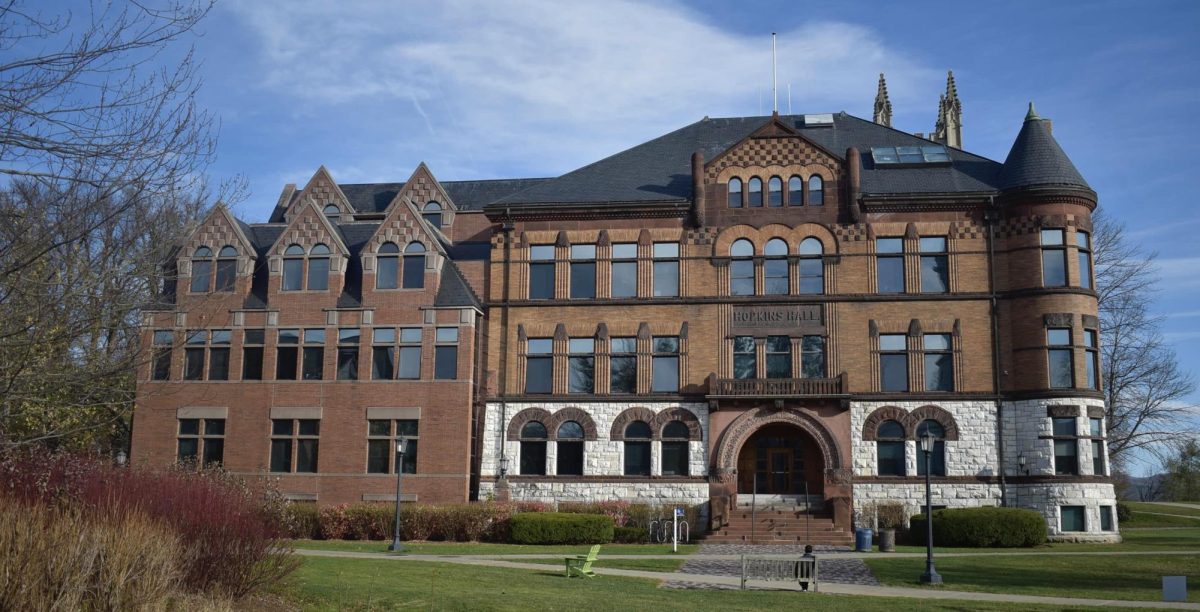Four takeaways from the College’s plan to mitigate the financial impact of COVID-19
June 23, 2020
In an email sent to the College community on June 8, Provost Dukes Love, chair of the Ad Hoc Committee on Financial Planning, outlined the steps the College will take to mitigate the financial impact of the COVID-19 crisis during the 2020-21 fiscal year. The plan is estimated to save the College approximately $18 million out of its $245 million annual budget. Here are the four key takeaways from the email and the Record’s interview with Love:
1.) The College will keep most building projects frozen and reduce capital expenditures
The College has suspended construction on most building projects currently planned or underway, with the exception of the North Science building and Fort Bradshaw, a residence hall housing for students in the College’s History of Art Graduate Program. Both projects, which are nearing completion, use funds that are “restricted” and cannot be reallocated elsewhere. According to Love, the next priority in resuming construction is the Davis Center, “which will likely resume in the coming fiscal year given the high priority of the Davis Center to our mission.” Other projects, including plans for a new boathouse and renovations in Lawrence Hall, will remain frozen until the economic instability of COVID-19 lessens. These sharp cuts in building and capital renewal spending will free up about $5 million in the College’s budget.
2.) There will be a 10 percent reduction in spending across a wide array of sectors
Early in their deliberations, the committee asked the managers of each budgeted area of the College to submit a proposal explaining how they would achieve five, 10 and 15 percent reductions in spending, and what impacts the reductions would have on the College’s ability to execute its mission. Ultimately, the email stipulates, there will be a 10-percent reduction to each sector of campus expenses overseen by a member of senior staff, relative to their budgets from the 2020 fiscal year. For example, Love said, “that means that the areas of the College under the Provost (admission, financial aid, science center, libraries, etc.) would collectively need to reduce spending by 10 percent.” The reduction in spending on senior staff areas will amount to an estimated $7.5 million in savings.
3.) The College will hold faculty and staff pay at a flat level and limit new hires
To reduce compensation spending, which constitutes around 60 percent of the College’s expenditure, the Committee decided to freeze salaries and implement sharp reductions in hiring. The email noted that while the College is currently unable to monetarily reward the “extraordinary effort” put in by faculty and staff “on everything from strategic planning to the COVID-19 response,” it will be recognized in the future “once conditions improve.” In addition, the College has halted most hiring. According to Love, there will be a few exceptions to this hiring freeze, namely, openings in the Davis Center, the Dean of the College’s office and Institutional Research. The changes in hiring and salary policy are estimated to generate an additional $5.5 million in savings.
4.) Though markets have started to recover since March, the lasting economic impact of COVID-19 is still uncertain
In his email, Love noted that while the endowment’s performance has recovered from the historic economic downturn in March, there are still many unknowns at play. According to Love, the College has decreased its projections for revenue from net tuition, philanthropy and conferences by about $10 million. Love also anticipates an increased need for financial aid as families navigate difficult financial times. The lingering effects of COVID-19 will also likely result in new expenses, such as testing, personal protective equipment, sanitation supplies and changes to food preparation. Some of these additional costs are expected to be temporary, Love said, while others may be more long-lasting. The changes recommended by the committee are meant to address both short-term and sustained impacts of the pandemic, but additional action may prove necessary.
“There is tremendous uncertainty about the final impact,” Love said, “so we have to be prepared for another round of changes if our financial situation deteriorates relative to our current expectation.”







